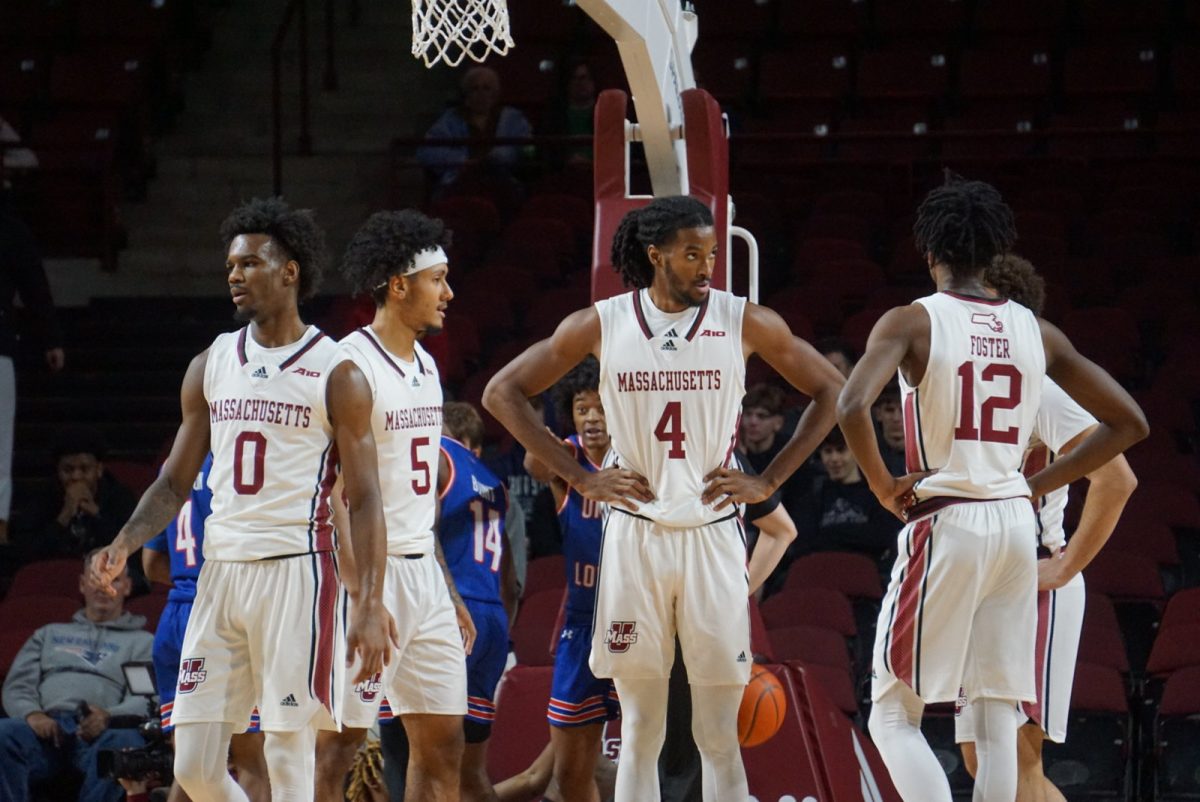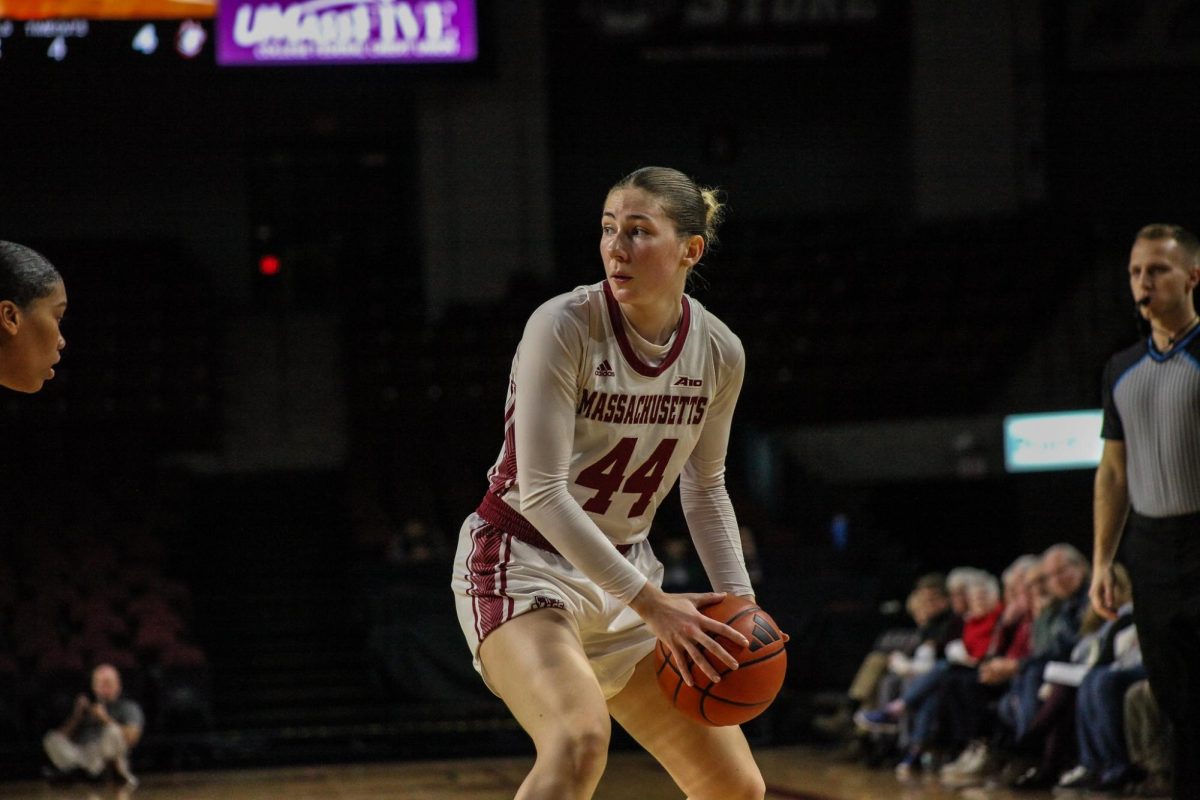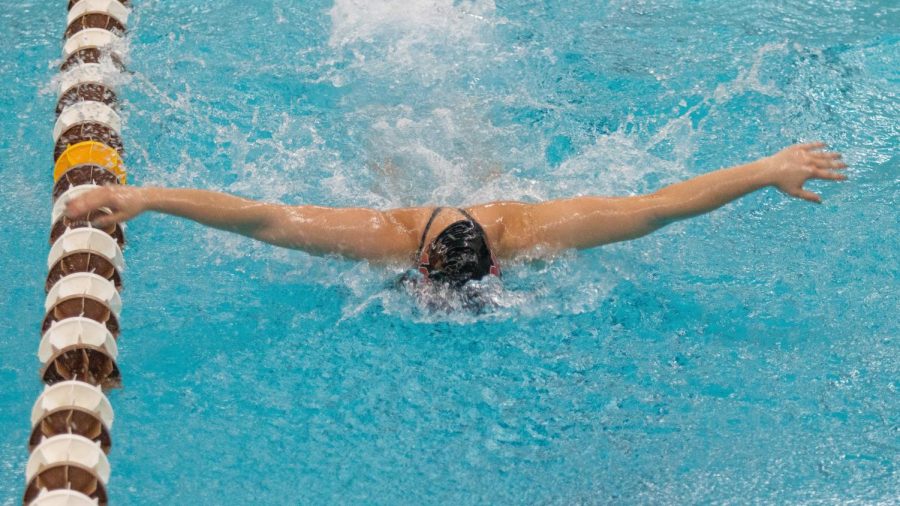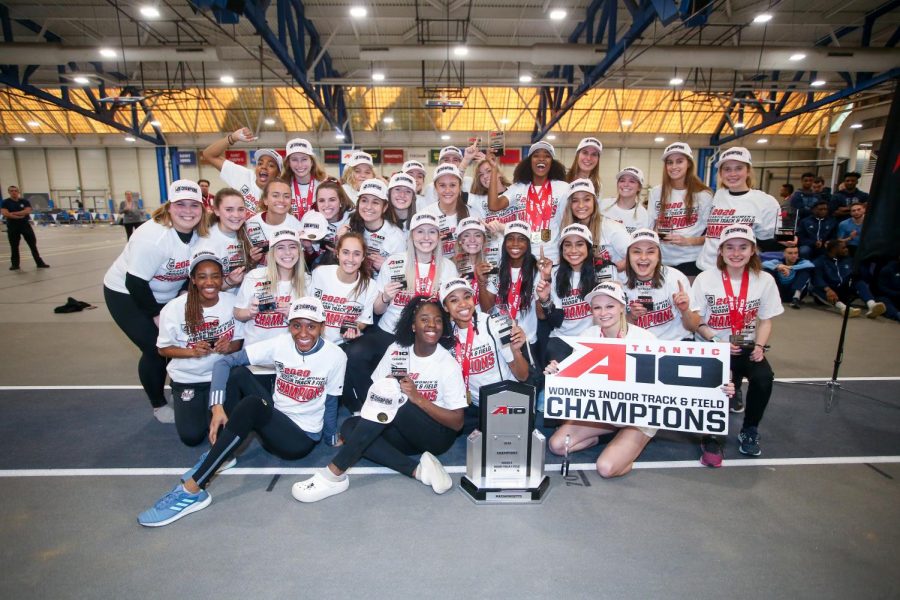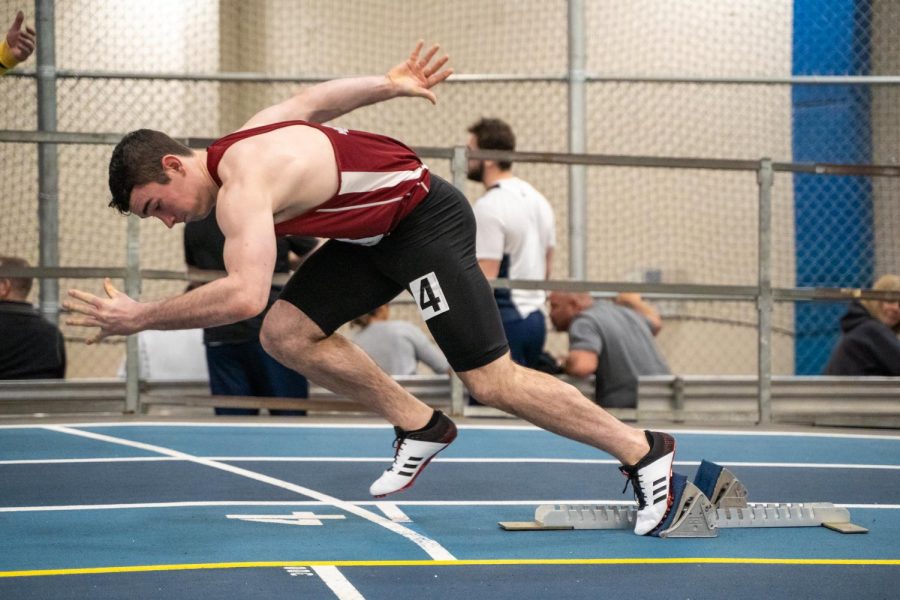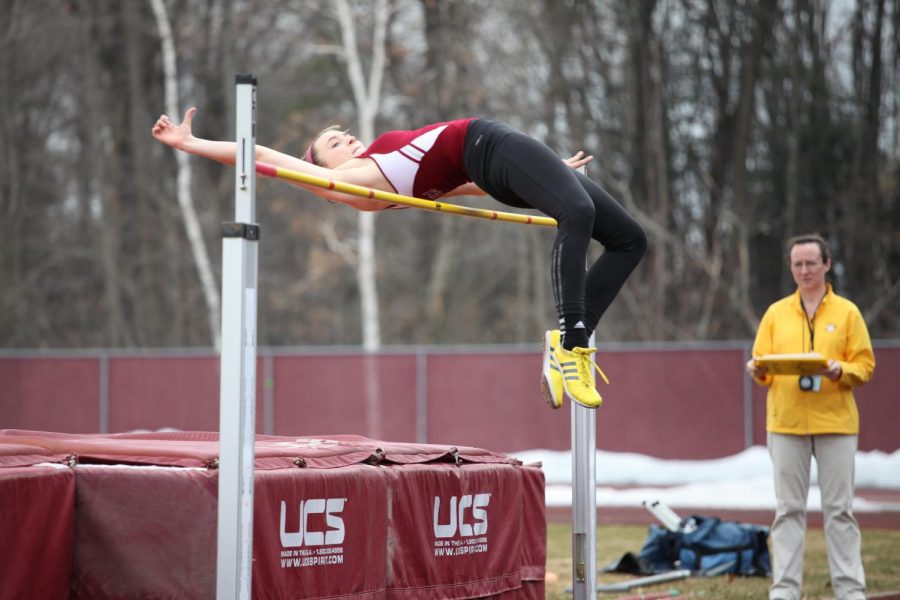
In an age when basketball and football dominate the sports headlines across most college campuses, track and field is a sport that usually takes a back seat.
That is, until athletes like Becky Stoyle make some noise and jump their way onto the scene — literally.
Stoyle, a sophomore and Pembroke, Mass., native, made a name for herself this past indoor season, registering historic performances week after week as a key member of the Massachusetts women’s track and field team. Her recent streak of dominance in the triple jump — the event described by UMass coach Julie LaFreniere as arguably the hardest in the sport — has turned some heads, and has helped to start putting track and field back on the map.
Stoyle recently became the first Minutewoman since 2005 to win the gold medal in her respective event at both the Atlantic 10 and New England Championships in the same season. At the A-10s, her jump of 41 feet, 1 inch, set not only her personal best mark, but also broke the program and the conference’s all-time indoor triple jump record. A bronze medal at the ECAC Championships and a third consecutive UMass Athlete of the Week award topped off her unforgettable season-ending ride.
While Stoyle recognizes the importance of her record-breaking jumps and the hard work that’s gone into accomplishing such feats, she is still far from settled.
“I’m still not satisfied with what I’ve done,” Stoyle said. “I want to jump a lot farther than 41 feet. Thinking about what I’m even more capable of, I know I can do better.”
Assistant coach David Jackson, who works individually with the jumpers at practice, knew from the first day Stoyle stepped on the practice field her talent level was record-worthy.
“It was known and expected from her coming into college that, as long as she stayed healthy, there’s no reason that she wouldn’t break the records,” Jackson said. “I think she’s going to be one of the best jumpers to ever come out of here by the time she’s done.”
Creating a champion
Coming out of high school, Stoyle had to make the difficult transition from training on her own to working full-time with a coach.
“Coach Jackson made jumping an actual workout,” she said.
Prior to college, Stoyle had no jumping coaches to point out mistakes in her form or tell her what she was doing right. She had to teach herself. Under the tutelage of Jackson at UMass, Stoyle quickly learned that, although the training is taken to another level, it pays dividends in the end.
“Adjusting was a lot harder, but it was also better, so I liked it more,” Stoyle said. “I focused on the specifics, and that’s why I’ve excelled and done so well to this point because my training has not only become better, but it forced me to become better.”
LaFreniere was “surprised” that Stoyle was able to reach her current level of competition in such a short amount of time. Stoyle’s ability to handle the challenges of becoming stronger, faster and better at her techniques without taking that “inevitable starting-off dip” that most younger athletes endure, is a tribute to not only her physical toughness, but even more importantly, her strong mental capacity.
“When you pile all of those obstacles that early on an athlete, they might take a step back or two,” LaFreniere said. “But she didn’t. Partly because mentally, she’s got it.”
Another one of the essential factors that Stoyle’s “got” is competitiveness. There’s never been a question about her commitment to success in anything she’s done, let alone on the track field. In high school, people used to be afraid of her because of the “apparent dirty looks” on her face all the time. Her mentality of “hating to lose” is what she believes contributes to her success.
“I consider myself a competitive person in everything,” she said. “I think that’s why in track I’m so competitive. Even the small things, I just like to be the best at what I do.”
Jackson agrees.
“(Even at practice) she just gets frustrated more than the other athletes,” Jackson said. “She knows she can do so much better, so when she doesn’t (perform to her ability), she lets herself know it.”
When the lights are on at big-time meets such as the A-10s and New Englands, Stoyle has a hard time focusing on anything but her event. The combination of sleepless nights, planning out every move in her head and training her body to be in the best possible shape add up to a week full of continuous stress leading up to a meet.
Although she loathes the week of stress before top-level competition and all the grinding circumstances that come with it, Stoyle does, in fact, find a silver lining in the tiresome process.
“It gets me really pumped up and I know I need to do big things,” Stoyle said. “Although the stress is bad, it’s what gets me really focused. That’s why I performed my best, because I knew that I had to do.”
Stoyle’s knack for coming up big in pressure moments is something her coaches praise her for.
“When it comes down to it, she performs when it’s time to perform, and that’s one thing you can’t coach,” Jackson said.
Added LaFreniere about Stoyle’s recent success: “Some athletes make it to the finals and their fatigue stops them from sustaining their performances. Becky did the opposite, and excelled in her last three events.”
Not done yet
While all of the individual success Stoyle achieves on the field is what earns the publicity, she is not one to make everything about herself. She believes it has as much to do with her team than anything.
Stoyle credits the culture of the team — the coaching, the athletes, the atmosphere — as a main reason why she chose to come to UMass. LaFreniere said she “couldn’t afford to lose her” back when she was recruiting Stoyle and it turned out the team she built helped aid in that cause.
“I knew that this is the place I would probably fit and do the best,” Stoyle said. “The team is my kind of people. We all know what we want, and what each other need to do, so we’re all supportive of one another.
“Without the support of my team and my coaches, none of this would be possible. They have a lot to do with my success, it’s not just me.”
With a historic indoor season under her belt, Stoyle must now turn the page and prepare for the outdoor meets that begin on April 6. While it’s hard to look past all of the accolades, Stoyle understands that there are bigger and better things left to accomplish in the future.
“I don’t want to take any steps back,” she said. “There are still records I can break, and that’s motivating.”
While Stoyle’s body of work as only a sophomore would be considered an illustrious collegiate career for most other athletes, LaFreniere believes that this past season was only one step into a very bright future and her best is yet to come.
“You’re going to be hearing a lot more from her over the next two years,” LaFreniere said.
“She’s just getting started.”
Joey Saade can be reached at [email protected] and followed on Twitter @Jsaade1225.




